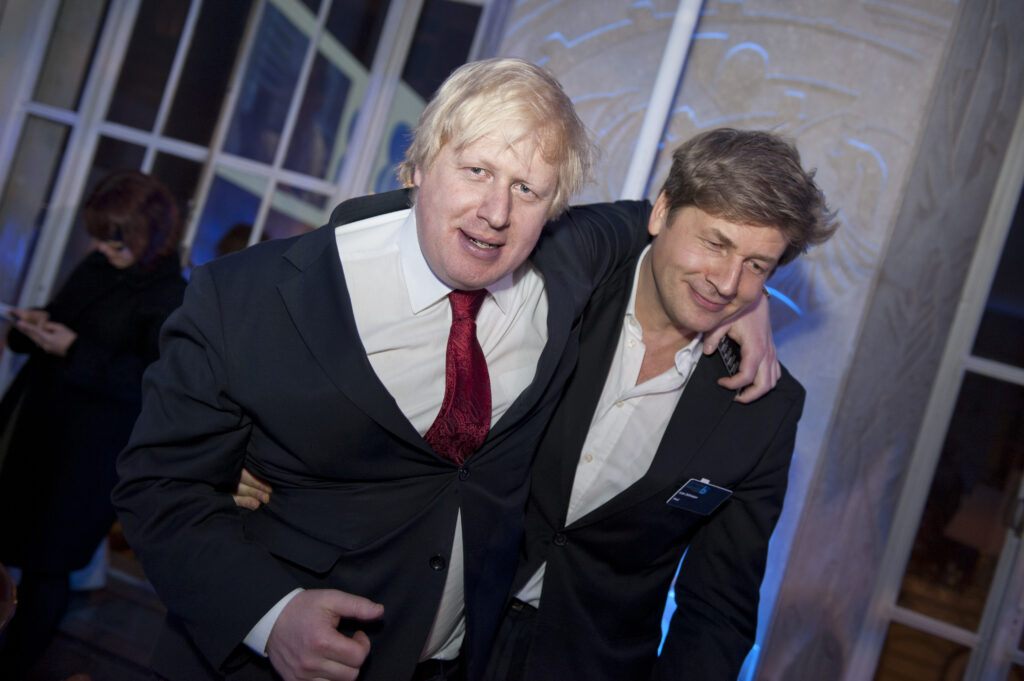
Nisha Kale
In London, Brexit seems to have taken the city by shock. Walking through the streets of central London, people stand everywhere with political signs, and the news plays in every open shop. There is an air of panic and uncertainty. Some taxi drivers are waving Union flags as they drive down the street in celebration of a perceived “independence”. In front of Parliament crowds have begun to gather; some waving flags in celebration, others with signs reading “#REMAIN” looking angry and lost. London seems to recognize, like the rest of the world, the uncharted water it is now in. Britain leaving the EU is nothing short of catastrophic; not only has the pound fallen to a historical low, but the current government seems to have no idea how to even execute a departure from the EU.
Ultimately Britain’s exit sets a terrible precedent for how a country handles increased immigration. Having traveled England the last two weeks, I have heard different viewpoints on the Brexit from English citizens in both the city and countryside. While people in the city seem to overwhelmingly support staying, many in the countryside expressed to me their fear of immigrants, especially northern African and Eastern European ones, undercutting local jobs and putting stress on their housing and public services. A vocal leader of the “Leave” group Nigel Farage has echoed these sentiments, expressing concern that refugees carry extremist viewpoints. In a statement channeling Republican presidential candidate Donald Trump, he suggested refugees increase the likelihood of mass attacks, and, “when ISIS says they will use the migrant crises to flood the continent with jihadi terrorist they probably mean it.”
However, an exit from the EU will not reverse the ethnic changes in Britain’s population. The vote was a reaction to migration and increasing economic hardship, and now Britain will be caught in uncertain turmoil for the next two years as the Brexit is formally worked out. The backlash effects of this vote are already showing themselves; Italy, France, Sweden, and Germany’s conservative parties have now declared a push for referendum. Scotland, Wales and Ireland have begun to prepare for a referendum to leave the United Kingdom in the interest of remaining in the EU. David Cameron recently just announced he is stepping down in October, leaving the new prime minister to vote on article 50, which determines Britain’s exit strategy from the EU. This means it will be another 2.5 years before Britain’s exit is formalized. The historically unprecedented fragmentation of Europe has begun. Anti-immigration movements are at their core anti-immigrant; today Britain and the world are facing the reality of reactionary conservative politics.
Jack Anderson
It’s just past 2:00 AM here in New York. A few minutes ago, I finished watching the movie Now You See Me, which my girlfriend recommended. Afterwards I checked the result of the British referendum on EU membership. In the movie, four talented street magicians are brought together for a series of theatrical Robbin Hood-esque robberies using smoke and mirrors.
The leaders of the Brexit movement have pulled off their own magic trick. Britain’s decision to leave the EU will do financial damage to Europe. London’s wealthy elite have been politically deposed, and whatever changes occur within Britain in the future may very well be at the disadvantage of the longstanding, internationalist political and economic power holders. When the Brexit movement began, few took it seriously. But by the time Brexit was deemed a credible threat, it was already too late. The “Bremain” leadership moved to protect a safe that had already been looted. Large corporations have benefited the most from EU membership, and their bottom lines will feel the pain of leaving.
The commoner in Britain, perhaps a blue collar worker once victimized by an insurance company, may not see a significant or immediate economic effect on his or her life, despite inflation and stock market turbulence. The moral victory is one many Britons wanted. The attention, the hype and the underdog win are worth more in the minds of the people than the value of the pound or gross domestic product. Britain’s leaders forgot this very important fact. Think about it: when was the last time that anyone felt like Europe accomplished something? In the age of terrorism, refugee crises and economic inequality, Western populations are starving for a victory, or at least a good show. Politics is show business. If the people are not entertained, they’ll make their own fun. Surely, Shakespeare must have understood that.
One last thing worth noting is that technically the referendum is not legally binding on the government, and the act of leaving the EU will take quite some time. We will have to wait and see if the Brexit movement has the resolve to continue its performance; the movement finally has to confront the reality its organizers have designed.
Kara Junttila
Britain has chosen economic uncertainty and political reticence at a time when Europe needs strength and unity. This hotly contested referendum will have world-shaking consequences for British politics, global markets and the European project. Prime Minister David Cameron’s feeble and ultimately failing support for the “Remain” campaign has brought down his government – Cameron resigned as PM this morning. Scotland again shows itself differentiated from England and will likely push for a sequel to the Scottish independence referendum.
Global markets will react extremely negatively to the shock and uncertainty of Brexit in the coming days and weeks. The economic downside for the British economy can already be seen in the plummeting pound sterling, and more fallout is certain to come – especially since the consensus assumption seems to have been that Brexit was unlikely. Heightened risk and uncertainty will characterize global markets in light of Brexit, with economic pain reverberating from London.
Finally, Britain has chosen to vote against the European Union, the postwar project for European peace, modernity and civilization. This is necessarily a vote for British isolationism. When Britain could have been a leader, working from within the EU to implement better policy where needed, it has chosen retreat. This is a politically symbolic decision – a big day for Europe and a bad day for European unity. The risks of other countries seeking to follow Britain or renegotiate the terms of their EU membership are real. For those who believe in the political ideals enshrined at the European Union, this is a sad day. The bulwark countries of the EU should remain strong and united in the face of Brexit – their leadership will be needed as Britain steps back.
Steve Helmeci
Today marks one of the greatest disasters for global cooperation – both on a social and economic level – in history. Uncertainty and fear now rule the day, in minds as well as in markets. Many questions now have to be answered that have no business even being asked, but in the coming days we have to start figuring out solutions. Make no mistake, though: June 23, 2016 will live in infamy. Whether it lives in infamy in Britain alone or across the globe remains to be seen.
The following is what we know. We know that the markets are floundering. Less than five hours on from the confirmation of Leave’s victory, the pound has already fallen below $1.35 in the global currency markets – its lowest level since 1985. This dip is paralleled by the devaluation seen with the collapse of Lehman Brothers in 2008. We know that the crisis is not only within the currency markets. Stock markets across the world have already seen significant dips: the Japanese Nikkei has already fallen 8.3%, Hong Kong’s Hang Seng fell 4.9%, London stock futures are down 7% and the Dow is expected to fall 700 points at opening. India’s stock market is already trading down as well. Individual stocks, especially those in large British financial institutions, have fared even worse, with HSBC down 12% in Asian markets and Standard Chartered down 13%. We know that the British economy will retract as a result of this decision. The government itself has projected a 6.2% decrease in GDP by 2030 should the Leave vote win. We also know that the uncertainty does not end with the referendum. Should the UK choose to move forward with leaving procedures under article 50 of the Lisbon Treaty, those negotiations will take (at the most generous estimate) two years.
Those above points are about all that we know. What we do not know is far scarier, and it all stems from the aforementioned uncertainty. Will France and Holland have referendums on EU membership? What will happen to the millions of migrants in the UK? What will the floor be for the pound? Will the UK be able to recreate or renegotiate trade access and trade deals that facilitate its import and export markets? Its deal with the US alone accounts for 16.6% of its trade and will need to be renegotiated.
The British people have not built a new, free United Kingdom. They have shrunk their global power and influence, hurt their biggest institutions, made it harder for trade, raised the prices on imported goods, lowered the value of their currency and jeopardized a cooperation that has stabilized the continent for over six decades.
Brandon Whitehill
For many, Britain’s vote to be first country to leave the European Union is a shock, an upset victory of historic proportions. Make no mistake, these results should be anything but surprising; Brexit represents an assertion of the most fundamental right a free society possesses—the right to govern itself. Any system that subjugates its people to the will and whim of unelected and unrepresentative Eurocrats in a foreign country does not deserve to be called a democracy. Last night in a referendum that always transcended economics and current affairs, Britons turned out in record numbers to reclaim their sovereignty and send a worldwide message that timeless tenets like self-determination still matter.
Last night’s result does not represent an ill-advised populist outburst, nor will it spell economic suicide for the world’s fifth-largest economy, but many pressing questions remain. The referendum is not legally binding, meaning Parliament must act pursuant to the result in what is sure to be a slow withdrawal. The Remain campaign’s defeat strikes a fatal blow not only to David Cameron’s premiership, but also the progressive wave that replaced Boris Johnson with Sadiq Khan. As for Johnson, his political future (future prime minister, perhaps?) looks as bright as the EU’s does dark. Looking to Britain’s example, many countries may find themselves not well-served by an institution incapable of retaining its most influential members. The greatest change, however, will be subtler. British calendars will henceforth hail June 23 as the day that a free people solemnly declared and published their independence from the illiberal Leviathan that the EU has become. Happy Independence Day, Britain.
Gesine Höltmann
Following the last minutes of the referendum count this morning and seeing the inevitability of the outcome, I did not feel like I could comment so coolly on current events. I, like so many Europeans alongside me, take this result personally. You may call that attitude exaggerated. But it is only beginning to sink in that so many of our friends, as well as millions of fellow Europeans lost their EU rights over night. This was one political gamble too many, at a time when Europe is in dire need of solidarity. While we cannot begin to imagine Europe without the process of integration of the past decades, it is just as impossible to imagine the repercussions of this referendum, and the implications of a ‘no return’ scenario. This has led me to severely question the notion of referenda: is it the ends or the means that we are pursuing? And can an outcome that deprives so many of their rights and daily reality be called a democratic decision?
This outcome reminds me more of the dictatorship of the majority. Of course, you will say, if you dislike the outcome of a vote, you are likely to reject it as undemocratic. But what has happened to the conception that democracy is not confined to voting? Now more than ever, with cleavages between social classes and populist movements on a home-run, we need to return to democracy as the art of finding consensus – or at least consistently working towards consensus. We cannot sustain societies, where 51% decide the fate of 49% who identify as Europeans – we need to wake up to the deep cleavages that we find across European populations, and we need to address them through communicative action, not referenda.
The views expressed by the authors do not necessarily reflect those of the Glimpse from the Globe staff, editors or governors.








